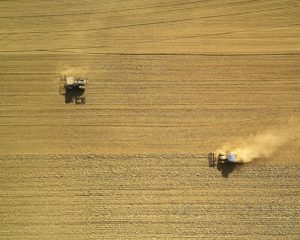EU to fund intensive farming practices
The European Union will continue funding intensive farming practices until at least 2027, according to the European Environmental Bureau (EEB).
Intensive agriculture practices are one of the single biggest drivers of species extinction. They also create around 15% of Europe’s greenhouse gas emissions and widespread pesticide contamination means that fertile soil is being lost faster than it can regenerate in over 10% of Europe’s land area.
In the new €54bn-a-year EU agriculture policy 2023-2027 which has just been finalised, around three-quarters will go to intensive farms.
The deal being still has to pass the European Parliament and national farm ministers, but according to EEB these steps are normally a formality.

If passed, this will pose a serious obstacle to nationally agreed environmental targets, including cutting European climate emissions by 55% and ending biodiversity loss by 2030.
It will also clash with flagship European environmental farming targets to halve pesticides use, halve antibiotic use and halve fertiliser pollution, grow organic farmland from 8% to 25% and dedicate 10% of farmland to wildlife habitats.
In the new plan, various eco-schemes, worth up to €11 billion a year have also been created.
But according to EEB control of this has been handed to member governments with a weak accountability and with a history of favouring intensive farming.
EEB agriculture policy officer Célia Nyssens said: ‘The EU spends more on farmers than on anything else, making farm policy a powerful tool for good or for bad. We could be helping farmers restore degraded soils, adapt to climate change and rescue collapsing bee and other wildlife populations.
‘But this new policy is a monumental failure of leadership to take on those grave threats. We are already seeing national governments planning for business as usual, to keep the money flowing to intensive farms. The European Parliament should take the rare step of throwing out this destructive deal this summer, to force a reset.’
Photo by Johny Goerend









